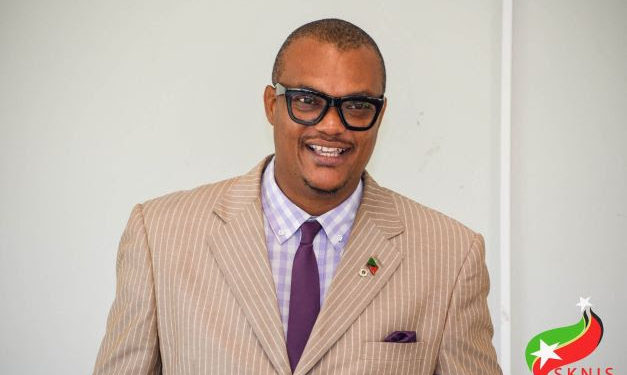Basseterre, St. Kitts, September 15, 2023 (SKN Commission for UNESCO): During the course of one year, St. Kitts and Nevis has negotiated some eight substantive capacity-building projects with the UN specialised agency, UNESCO, for direct implementation across the Federation. The projects, now supported by UNESCO funding of over $290,000, cover some of the key flagship areas of UNESCO’s technical mandate: cultural heritage, education, water policy and biodiversity.
After a recent update from the Hon. Minister of Education, and Deputy Prime Minister, Geoffrey Hanley, the secretary-general of the St. Kitts and Nevis National Commission for UNESCO, Ms. Dorothy Warner, noted “The National Commission has been very active in overseeing a diverse range of added-value UNESCO projects across the twin-island federation. We work closely with the project focal contacts on both islands to ensure completion of these projects, involving regular consultations with relevant stakeholders for the development of policy frameworks”.
The projects cover the following topics:
- SKN Qualification Accreditation Framework
- Professionalise the Teaching Force Framework
- Education for Sustainable Development (ESD)
- Intangible Cultural Heritage national policy framework
- Anti-doping in Sport (ADiS)
- Identification of SKN heritage sites eligible for the National Tentative List comprising potential sites for nomination to the World Heritage List
- Earth Network project: Man and Biosphere Reserve (St. Mary’s, Cayon)
- UNESCO Water Catchment and Aquifer Project
Minister Hanley, who will be representing the Federation in November at the UNESCO 42nd General Conference to be held in Paris, was apprised of the status of projects and the timeframe for their completion. He said, “UNESCO is collaborating with the St. Kitts and Nevis government in delivering expertise much sought after by us, as a small island developing state with a limited pool of local experts. As the Minister responsible for UNESCO affairs, I especially appreciate this. We strive to attain the specific SDGs of quality education, life on land and clean water and sanitation, via UNESCO expertise. I applaud the efforts of UNESCO.”
Minister Hanley took note of the two projects entirely financed by UN Member States in the form of grants and financial support: the Earth Network biodiversity Initiative funded by the Government of Italy and the development of an Education for Sustainable Development framework, funded by the Government of Japan.
The more recent high-profile project, now the focus of worldwide media attention promoted by UNESCO as a game-changing biodiversity initiative, The Earth Network, was particularly welcomed in St. Kitts and Nevis. It relates to strengthening the biodiversity credentials of the UNESCO-accredited St. Mary’s Biosphere Reserve (SMBR) in St. Kitts, now in its 12th year of existence. With funding provided by the Government of Italy, the Federation’s biosphere reserve was chosen as the only SIDS UNESCO MAB site to benefit from targeted technical assistance. Armed with a biodiversity and ecological expert put at the government’s disposal, this project aims to address specific challenges associated with agricultural practices, tools, methods of cultivation, preservation, and monetization of biodiversity-led sustainable agriculture processes on the reserve. The overall aim is to embrace better use of tropical forests, enhance the cultivation of new fruits, and combat soil erosion, explore introducing seed varieties more tolerant to heat and drought.
The Earth Network project in the SMBR, coordinated by Telca Wallace, a resident of the reserve, will conclude this autumn with a series of recommendations by biodiversity and ecological expert, Dr.Haydi Berrenstein, to be submitted to the relevant St. Kitts and Nevis ministers, which will cover, inter alia, the development of a seed bank, the production of natural fertilizers and a brand new biodiversity reforestation plan.
The outcome will be featured at a special expo to be held in November at UNESCO HQ in Paris in the form of photos and videos, accompanied by interviews with key Cayon residents involved in the Earth Network project.
The second UNESCO project to be funded, this time by the government of Japan, as a grant of $90,000, relates to the development of an education for sustainable development (ESD) framework for integration into the Federal education strategy by 2026.
Led by Dr. Tricia Esdaille, Senior Assistant Secretary, at the Federal Ministry of Education, this project seeks to develop an overarching ESD national strategy, with the creation of an inter-sectoral Federal committee to develop and then drive the national sustainability agenda in alignment with the SDG’s and ESD’s for 2030. With the assistance of a leading UNESCO-accredited ESD expert, a number of policy options and strategies will be identified for the consideration of the Government which can inform the subsequent development of a national ESD 2030 country initiative.
The ESD project team is preparing a prioritised development plan highlighting the areas of national focus for ESD in consultation with the Government, the private sector, civil society, and relevant stakeholders.
Assisting in securing UNESCO technical assistance is the St. Kitts and Nevis Ambassador to UNESCO in Paris, Dr. David Doyle, who stated:
“I am keen that solid progress be made on each of the eight UNESCO projects, all highly relevant and meaningful to the attainment of the country’s SDGs”. He maintains a regular dialogue with the UNESCO Secretariat on each project, “ensuring an alignment on objectives, scope and measurable outcomes”.
Ambassador Doyle will accompany Minister Hanley and Ms. Dorothy Warner to the UNESCO General Conference in Paris during the first week in November, with meetings being scheduled with UNESCO experts and officials to enable the Minister to be further briefed on the projects and next steps.
-30-









